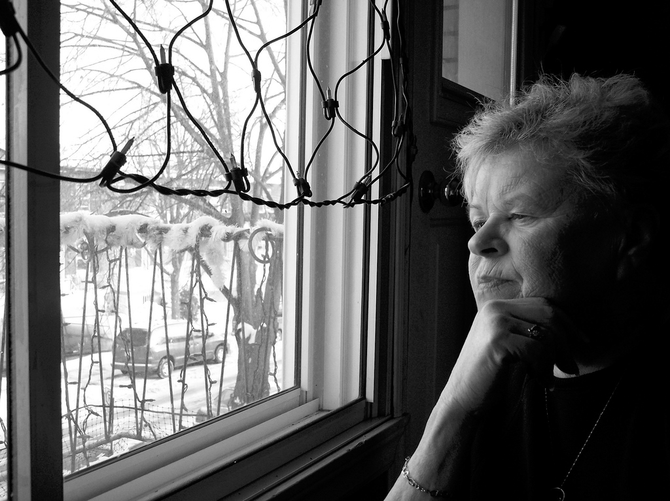Although this winter has been unseasonably warm (even for Mississippi) so far, and given us bipolar days of frigid mornings and hot afternoons, we can only assume that colder weather is coming soon. Research shows that darker, colder months increase depression for many, specifically women and individuals between the ages of 18-30. Statistics show that acquired debt, health problems, food and alcohol consumption, suicide and marital issues increase during the winter months. That being said, the chances are probably pretty good that you’ve felt a little down over the last few months. How could you not? With the uncertain economy, poor job market and other life stressors, it’s totally normal.
It is something that many people have experienced before: depression and/or emotional fluctuations that appear to change with various seasons. According to the Diagnostic and Statistical Manual of Mental Disorders (DSM-IV), “Seasonal affective disorder (SAD), also known as winter depression, winter blues, summer blues or seasonal depression, is a mood disorder in which individuals who have normal mental health experience depressive symptoms. This disorder occurs at the same time every year, typically beginning in the fall and ending in spring.” (Although on some occasions, some individuals experience the opposite—they become depressed when spring or summer comes around.)
Between 4 percent and 6 percent of individuals in the United States suffer from SAD. Additionally, 10 to 20 percent may experience a milder form of SAD. Winter-onset SAD is more common in northern regions, where the winter season is typically longer and the weather more dismal. So with that being said, let’s thank Mississippi for its warmer winter months!
However, lack of sunlight is a contributing factor as well, something we do suffer from in the south the same as other areas of the country and globe. Some professionals suggest treatment with “sunshine” bulbs or melatonin supplements—consult a doctor if you are interested in pursuing such treatments. If your work schedule or lifestyle is such that you leave the house while it is dark and return after it is already dark again, try to find time during daylight hours to spend a few minutes in the sun. Take your lunch outside, or go for a quick afternoon walk.
SAD goes beyond a simple case of the “winter blues.” It’s marked by a number of symptoms that an individual would expect to see with depression: anxiety, feelings of hopelessness, weight gain, oversleeping, loss of interest in formerly enjoyable activities and a general decline in energy. Now, it’s normal to have days where you feel down from time to time, but if you’re feeling down for days at a time and are having a hard time motivating yourself to attempt normal tasks then you might want to think about seeing a mental health professional or your health care provider.
The causes of SAD are unknown. However, there are multiple factors that contribute to it, including age and an individual’s chemical makeup. SAD occurs more often in women, and in those who have had a family history of depression.
As a clinical psychology trainee, I encourage many individuals with various forms of depression, including SAD, to incorporate various interventions to cope with their symptoms from a holistic approach, by considering the whole individual and not one single part. Moreover, I stress that if these are regularly practiced, one is equipped to combat SAD, or any kind of depression, in the future.
What to Do
• Exercise. Recent studies have shown regular cardiovascular exercise alleviates symptoms of depression and may be useful in treating mild to moderate major depression and maintaining good health. Regardless, you'll be doing something positive to help your mind and body. Thirty minutes of cardio exercise daily is suggested such as jogging, aerobics or cycling.
• Go outside and socialize. With the winter, longer periods of darkness and the cold weather make us want to stay at home and depression often worsens. Because of this, emotional health can suffer. Healthy socializing is a great remedy for the winter blues! Also, natural sunlight increases positive feelings.
• Meditate. Take time out of each day to calm your mind and relax. Keep a journal and after meditating, write down three positive things that happened during the day. Focusing on the positive things in our life will shift overall mood.
• Eat a healthy, well-balanced diet. Vitamin deficiencies can cause and increase depression. Examine your diet and make sure you are maintaining a nutritious and energizing plan.
• If you suffer from a severe case, visit a mental health professional. There are many therapists who specialize in depression. If your depression is related to a particular trigger, such as abuse or anxiety, seek a therapist who specializes in that individual aspect of depression. With consistent therapy, many individuals are able to effectively treat depression without medication.
Take-home message:
This article should be used as a guide and should not be used to diagnose SAD. Thus, exercise and other approaches mentioned in this article should be included as an adjunct form of therapy for SAD. At this time, the literature best supports that it be added to other treatments rather than taking the place of standard treatments such as medication or psychotherapy. Furthermore, if you are experiencing any symptoms presented in this article please consult with a mental health practitioner.


